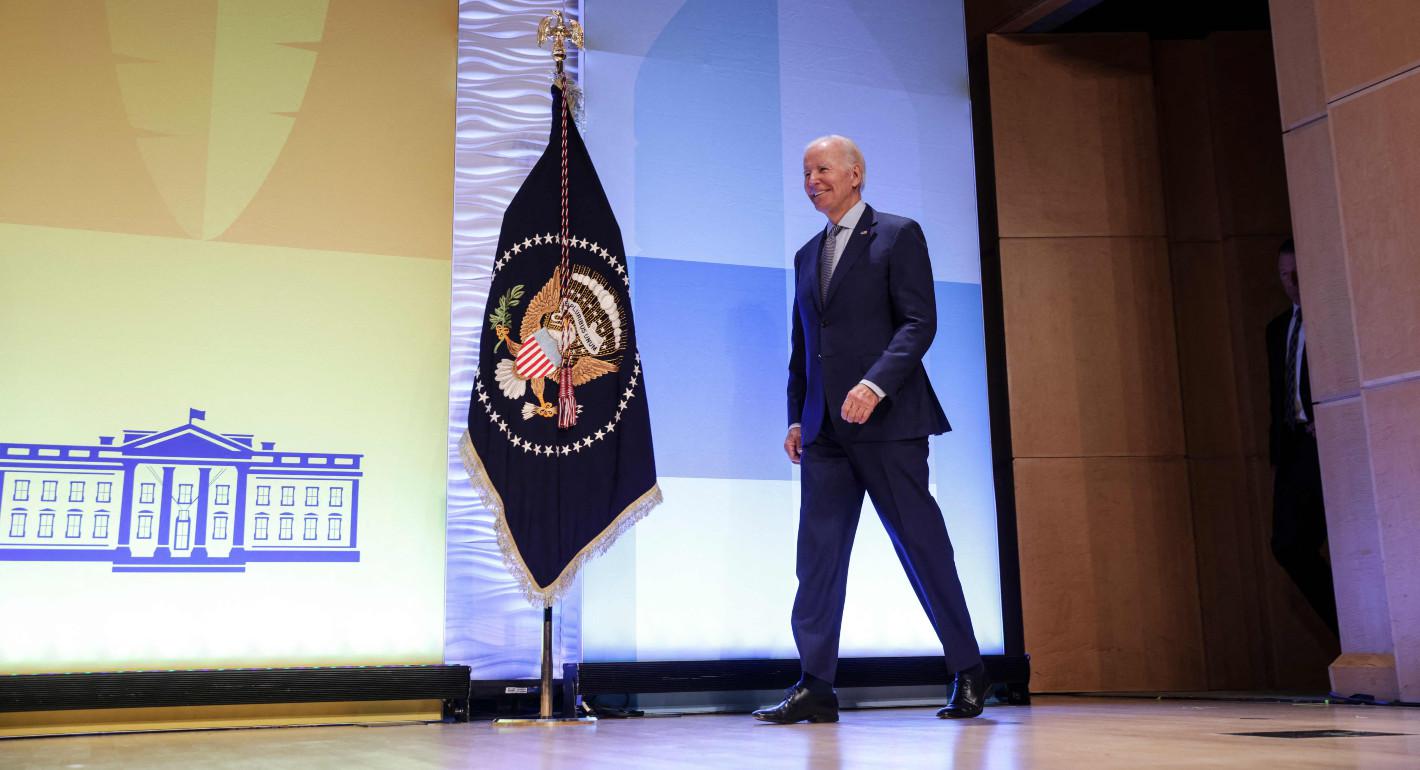The speech addressed Iran but said little about Ukraine, China, Gaza, or other global sources of tension.
Aaron David Miller
{
"authors": [
"Darshana M. Baruah"
],
"type": "commentary",
"centerAffiliationAll": "",
"centers": [
"Carnegie Endowment for International Peace"
],
"collections": [],
"englishNewsletterAll": "",
"nonEnglishNewsletterAll": "",
"primaryCenter": "Carnegie Endowment for International Peace",
"programAffiliation": "",
"programs": [],
"projects": [
"Indian Ocean Initiative"
],
"regions": [
"United States",
"China"
],
"topics": [
"Economy",
"Climate Change",
"Security"
]
}
Source: Getty
Washington must continue its engagement long after the islands fall out of the headlines if it is serious about its commitment to the region.
This week, the White House is hosting the first-ever summit-level dialogue with Pacific Island leaders. This is a welcome step for both sides, as Washington seeks to reengage with a region strategically important to its national security interests. But the fact that this is the first time in forty years that a U.S. president has officially met with some island leaders speaks volumes. The United States’ lack of interaction with small island nations—especially sovereign island nations not covered under its strategic and security umbrella—are few and far between. At the summit, the United States needs to understand island agency amid a new security environment and practice three strategies if it hopes to truly reengage with a region of strategic priority.
Let’s start with agency. With all its resources and capabilities and economy, the United States may find it hard to contextualize a small island nation’s ability to shape global matters. But we only need to look back a few months to recognize the impact islands can have on great power competition. In April, a security deal between the Solomon Islands and China sent some of the most senior U.S. officials scrambling to the region, redirecting resources, and organizing this week’s meeting. But while Washington sees the islands through a China-focused lens, the islands retain their agency and choice to make the decisions they see fit, irrespective of sensitivities of the United States. After all, the United States was missing from the region for four decades—despite being a Pacific power. Satyendra Prasad, Fiji’s permanent representative to the United Nations, underlined this point during his recent remarks at the Carnegie Endowment’s annual islands dialogue in New York earlier this month. “Voice matters to the small states of the Pacific as it does to you, the larger countries. . . . We know when to raise voices when it matters most,” he said.
U.S. policymakers at the summit must consider this agency while discussing and framing regional engagements and approaches. Unlike in previous eras, small island nations now hold the power to affect great power dynamics—sitting amid critical trade routes and waterways and in between Washington and Beijing. While islands do not have the power, resources, the capacity, or the intention to enter these economic and military power struggles, they have the agency to make decisions that can seriously alter Washington’s advantages in the Pacific and the wider region.
And while Washington seeks to limit Chinese presence in the region and avert any potential future Chinese bases on Pacific islands (a national security threat), the issues that matter most to island nations are not seen as security challenges for the United States. Climate change is the single biggest national security threat to island nations, and like most sovereign nations, they will try to defeat this foe through means and resources available from the partners willing to work with them. The U.S. officials at this week’s summit must understand the urgency of crises that might not allow for decadeslong debate on structures, frameworks, and procedures on how best to address climate change. At the islands dialogue, Palau’s minister of foreign affairs underlined this urgency, noting, “Palau doesn’t look at climate change as ‘sea level rise’ anymore. It’s about our very existence within the next ten to fifteen years.”
In addition to recognizing island agency in a new security environment, U.S. officials at the summit should consider three ways to make meaningful progress on renewed partnerships with the Pacific island nations.
Listen. None of the issues the Pacific island leaders will raise at the summit are likely to be new. These nations have been pressing on issues such as climate change, sustainable development, and climate finance at an urgent level for decades. For islands, the U.S. relationship is not a new collaboration but a frustrated partnership that has fallen short, especially on the climate crisis. (“Our calls for urgent climate action appear to be heeded less and less,” the prime minister of Tonga noted at the islands dialogue.) And although the United States has its own debates and initiatives on climate change, the small island nations’ assessments and needs—such as climate finance—are substantially different. The island nations need to lead the way on this discussion at the summit and beyond. One possible item to watch is the discussion around the Pacific 2050 strategy, which set forth islands’ climate goals and priorities. Washington should also listen to islands’ perspectives on regional developments in the Indo-Pacific and other areas of interests. If it does, it will quickly realize its gaps in perceptions, which will allow for a better and enduring Pacific island engagement strategy.
Reassess. There is no denying the strategic component of this renewed attention on islands, and the competition with China will be one of the most pressing and urgent security concerns for the United States. But as Washington prepares for this competition on strategic, diplomatic, political, and military levels, island nations in the Pacific will play an important role in each of these avenues. In order to offer solutions and engage with the region, U.S. officials should reassess policies toward island nations and leverage the country’s strengths in offering enduring partnerships. Placing climate change at the heart of U.S. engagements with the Pacific will go a long way in advancing its own strategic interests in the region. Washington need not build parallel roads and ports to compete with Beijing. Instead, it should leverage its experience, technical knowledge, and expertise in offering solutions to issues that matter most to island nations.
Finally, United States must show up. Between embassy closures and a lack of diplomatic visits to the region, it has decades of gaps to cover. Joe Biden’s administration has certainly shown interest in renewing its engagements, such as reopening its Solomon Islands embassy that was shuttered in 1993. And although this White House meeting is a key achievement in this administration’s Pacific policy, it should only be the start. If Washington is serious about its reengagement with the Pacific islands, it will need to continue to show up long after the news cycle moves beyond this historic summit.
Carnegie does not take institutional positions on public policy issues; the views represented herein are those of the author(s) and do not necessarily reflect the views of Carnegie, its staff, or its trustees.
The speech addressed Iran but said little about Ukraine, China, Gaza, or other global sources of tension.

Aaron David Miller
The pace of change in the global economy suggests that the IMF and World Bank could be ambitious as they review their debt sustainability framework.
C. Randall Henning
Because of this, the costs and risks of an attack merit far more public scrutiny than they are receiving.

Nicole Grajewski
Despite considerable challenges, the CPTPP countries and the EU recognize the need for collective action.

Barbara Weisel
France has stopped clinging to notions of being a great power and is embracing the middle power moment. But Emmanuel Macron has his work cut out if he is to secure his country’s global standing before his term in office ends.

Rym Momtaz